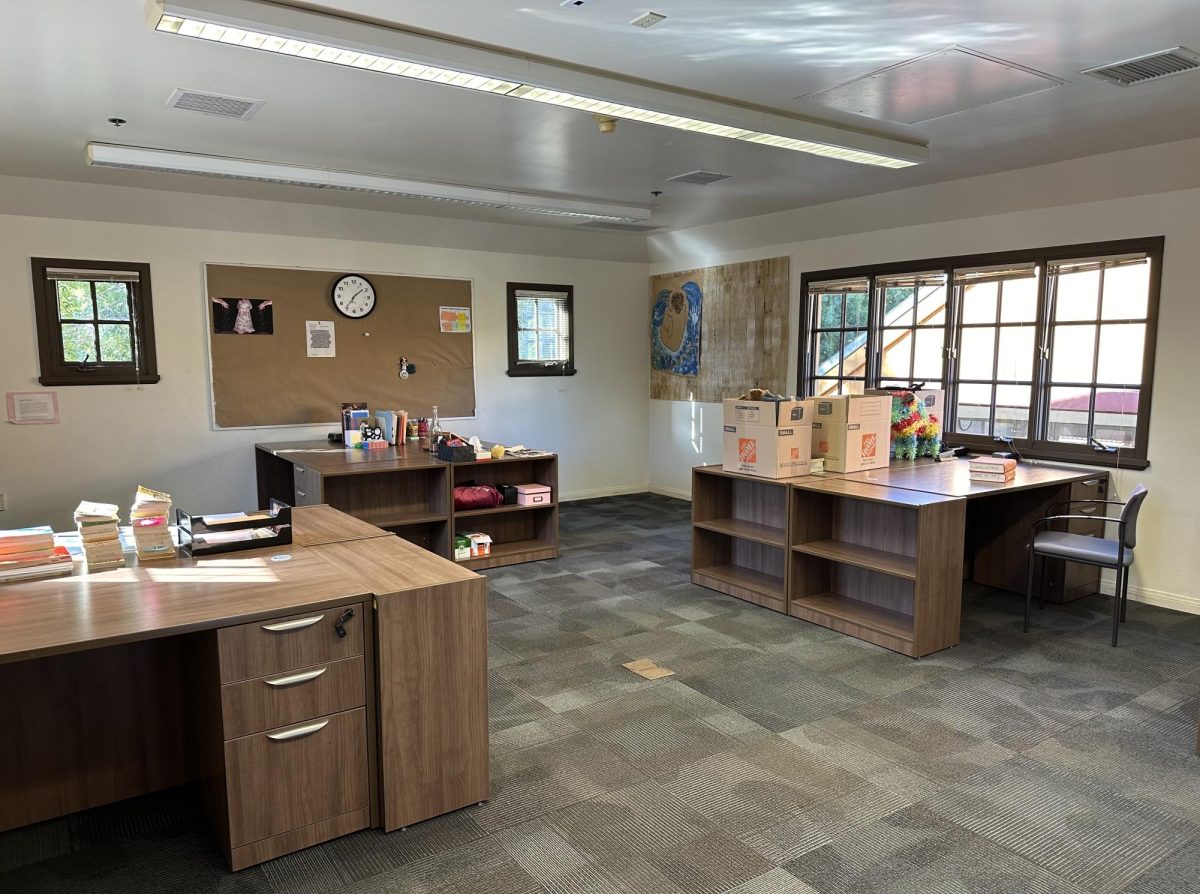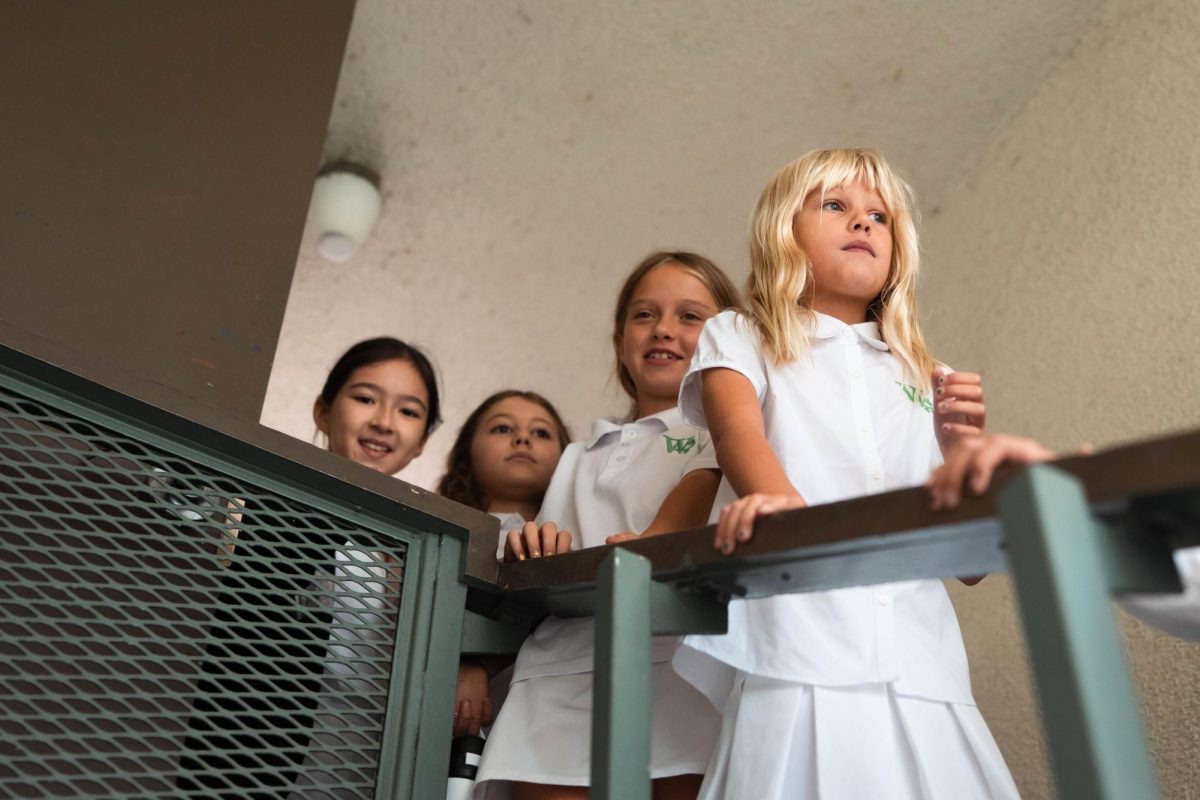Last February, the English Office relocated to Room 4 due to the smell in the Rothenberg Humanities building. Over the summer, Facilities investigated the smell and worked on the plumbing and ventilation, particularly on the Commons side of the building. The smell disappeared, so the English teachers moved back into their office before the 2023–2024 school began. Unfortunately, the smell returned the week before students returned to campus. Now, the English Office is moving again—but this time to EC21. Classes previously in EC21 are moving to the Fish Room.
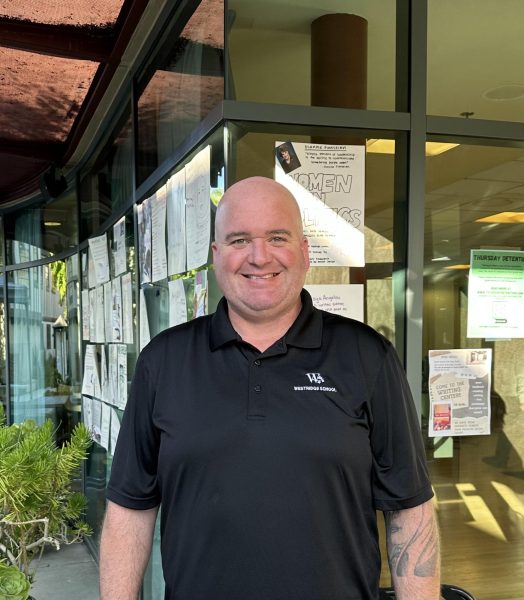
During the summer, Facilities rerouted and replaced pipes and worked on the roof ventilation in the west side of the Rothenberg Humanities building, where the Commons is. They believed the grease trap, which collects grease from the kitchen and prevents it from reaching the ocean, was the root of the issue as there was a smell in and outside of the Commons.
“What we found was the people before us, they weren’t taking care of [the grease trap]. So grease can actually harden and expand when not taken care of, and it creates a lot of gasses and bacteria,” Director of Dining Services Brandon Worrell said. The smell from the bad bacteria in the grease trap travels through a hose where it’s let off on the roof. However, the built up, solidified grease has damaged the grease trap.
The smell disappeared after the grease trap was fixed, but Facilities were not certain that the smell was completely resolved. Still, since there were no issues over the summer, the English teachers moved back into their office.
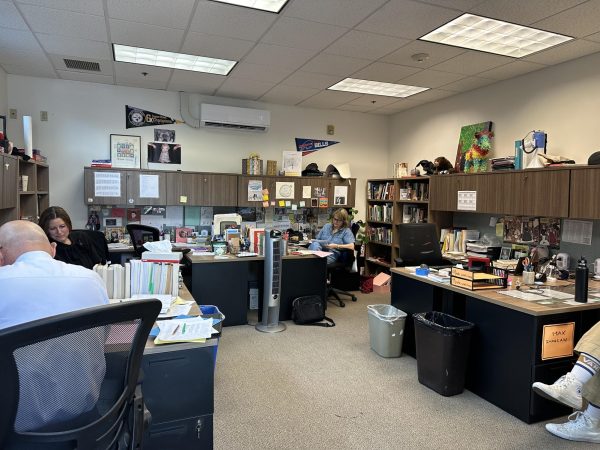
However, “the smell was back and back with a vengeance,” English teacher Ms. Tarra Stevenson described. A vent tower and a new air conditioning unit were implemented to help push out the smell. They also propped their door open with a chair in an effort to create more airflow.
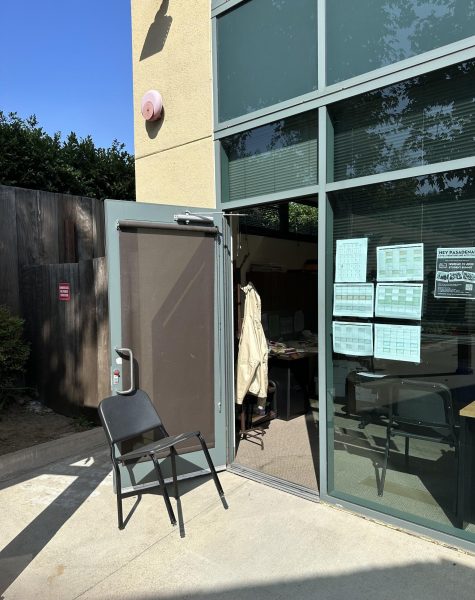
“We’re going to continue working on this. We’re working on things in a very methodical manner to achieve long-term results,” Director of Facilities Ms. Irina Kotsinian said.
Because the smell is not consistent to one location and travels inconsistently to new locations, Ms. Kotsinian is looking into a heating, ventilation, air conditioning (HVAC) system study to further investigate the root of the issue.
However with the return of the smell, the English office remained challenging to work in, and teachers needed a new space to work. “You can go outside to read, but especially for the teachers who…hand grade, or if you need to staple a billion papers or whatever, it’s just not feasible to move somewhere else,” Ms. Stevenson said. Because the teachers need to be in their office to access their materials, they are stuck inside with the smell.
Additionally, the English teachers often eat lunch in their office, but the smell makes meals unappetizing. “It’s just hard when your senses are overloaded to enjoy what you’re eating,” Ms. Stevenson said.
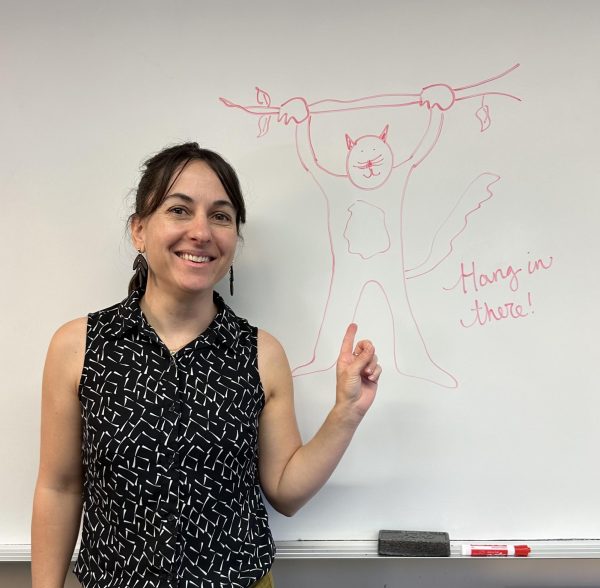
The English office brainstormed solutions with administration before landing on EC21 because of its proximity to their classrooms, as most English teachers teach in the English Classroom Building.
On October 24, all classes previously in EC21 were moved to the Fish Room, including Ms. Zoela Summerfield’s A and D Block Honors English III classes, Mr. Max Duncan’s C Block English II class, and his E, F and G Block English I classes.
For the most part, Ms. Summerfield enjoys teaching in the Fish Room. “I like the Fish Room. I think it’s really, really lovely. It’s kind of calming down there,” she said.
However, the English teachers typically arrange the desks in a circle, which poses some issues in the Fish Room. Moving the desks drags against the concrete floor and creates a screeching noise.

“The sound is terrible. So I might get noise canceling headphones just for the desks,” Ms. Summerfield said.
Faith C. ’25, who is in Ms. Summerfield’s A Block class, agreed. “I don’t really like the concrete floor because when you move the desks, it makes this really annoying sound.”
Additionally, the Fish Room’s small size can be challenging to learn in. “There’s just a cluster of desks in the corner, and there’s not a whole bunch of space in [the Fish Room],” Zoë T. ’26, who is in Mr. Duncan’s C Block, said. She later added that it’s missing the “home-y-ish feel of the English Classroom building.”
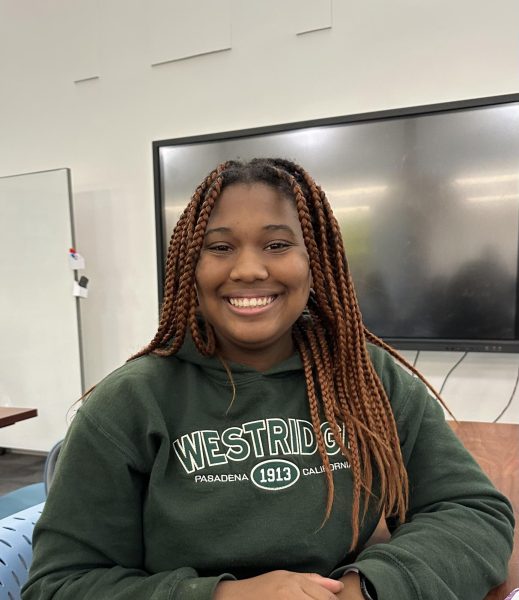
Faith also added that when her class was presenting group presentations on the TV, some of her classmates could not see the TV because the desks were blocking their views. “The room is too small for that many people. There’s too many desks in there,” Faith said.
Due to the fish tanks in the room, some students also report a fishy smell. “[The smell is] not super pungent. It’s not super obvious. But if you’re in there for a while, you’ll smell it,” Zoë said.
By turning the Fish Room into a classroom, it no longer functions well as a student space.
Sandhya R. ’25 often ate lunch and studied in the Fish Room but finds it more challenging now that it has been converted into a classroom. The usual round tables were replaced with less comfortable, small individual desks.

“I don’t think the Fish Room should be a classroom because there’s not enough study spaces. Like the library is always too busy, and the Fish Room is the second spot. And then it’s now a classroom so there’s nowhere else, really,” Sandhya said.
Also, because there is a C Block class, she sometimes has to wait outside and eat her lunch on the green tables on the Science Building Patio. Near the end of lunch, Ms. Summerfield’s D Block class sometimes comes in early. The solution isn’t perfect, with its difficulties of having the Fish Room as a classroom both for the students in the class and those who previously used it as a study and social space.
Tentatively, the English department plans to move to EC21 by November 10. The move is most likely temporary, and Ms. Stevenson reflected on how it’s challenging for the teachers to keep moving around and not have all their materials with them. “We do want, eventually, a home,” she said.





























![Dr. Zanita Kelly, Director of Lower and Middle School, pictured above, and the rest of Westridge Administration were instrumental to providing Westridge faculty and staff the support they needed after the Eaton fire. "[Teachers] are part of the community," said Dr. Kelly. "Just like our families and students."](https://westridgespyglass.org/wp-content/uploads/2025/03/dr.-kellyyy-1-e1748143600809.png)






















